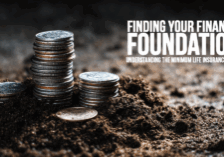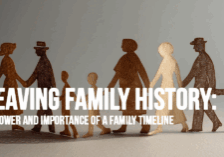What Happens to Your Debts After You Die?

What Happens to Your Debts After You Die?
It is probably not surprising that we have had people tell us that “I don’t need life insurance because I’ll be dead anyway.” It may be a bit of a cynical way to look at what happens at the end of life.
The fact is, however, that death does not eliminate debts. Many debts are left behind for loved ones to address. There is some truth to the expression “The only thing certain in life in death and taxes.” Here’s a closer look at how debts are handled upon a death.
Generally speaking, any remaining debts the deceased may owe are paid from the estate of the person who died. This means that far from “disappearing”, debts are still paid once the estate of the deceased has been established. This means that any debts will reduce any amount that would otherwise be left to loved ones.
Now, here is the important part. While no one other than the deceased is responsible for their debts, there are some exceptions.
- If there are any loans that were co-signed by anyone other than the deceased, that debt is transferred to the co-signer. In some cases, this may come to a surprise to the co-signer who may have forgotten they guaranteed the debt.
- If there is a joint account holder on credit card accounts, the surviving person will be responsible for the debt. This is different than an “authorized user” of a credit card account who is not usually accountable.
- State law may require surviving spouses to pay debts of a deceased, especially as they relate to jointly owned property.
While it is common for government issued student loans to be forgiven upon a person’s death, those who have co-signed for private student loans may still be held responsible. This means, if you die with private student loans that someone has co-signed for, that loan will become the responsibility of co-signer. That would be unfortunate for someone who was trying to help you build your future.
As far as personal income taxes, the Internal Revenue Service (IRS) says “In general, the final individual income tax return of a deceased is prepared and filed in the same manner as when they were alive. All income up to the date of death must be reported and all credits and deductions to which the deceased is entitled may be claimed.”
The point is, debts do not simply go away upon your death. Others will be responsible for accounting for them and fines may come from your estate to pay for them. It is not just as simple as stating. “I’ll be dead anyway.”
Make sure you are covered by securing at least a minimal amount of life insurance. We can help you get coverage that may be surprisingly affordable. Contact one of our independent agents to get started today.
Do you have questions about your insurance? Find an insurance agent near you with our Agent Finder
Search All Blogs
Search All Blogs
Read More Insurance Blogs
Your Life Insurance Recipe: Crafting the Perfect Blend for Your Family’s Future
Find your perfect life insurance mix: Learn how to blend term and permanent policies for optimal family protection.
Embracing Tomorrow: The Practical Power of Planning for Life’s Only Certainty
Face the future with confidence: Understand how planning for life’s only certainty with life insurance can provide lasting security.
Navigating the Grandparenting Journey: Understanding Today’s Families
Grandparenting today: Learn key shifts in family dynamics to build stronger connections with your children and grandchildren.
Finding Your Financial Foundation: Understanding the Minimum Life Insurance You Need
What’s the minimum life insurance you really need? Learn about covering final expenses, debts, and providing immediate financial relief for your family.
Declutter Your Life: Beyond the Physical to a More Streamlined Existence
Tired of clutter? Discover actionable tips to declutter not just your belongings, but also your finances and digital life for a more streamlined and stress-free life.
Your Life Insurance Journey: Start Small, Dream Big, Build Security
Don’t wait for the perfect policy. Discover how starting small with life insurance is the key to building long-term financial security for your family.
Small Steps, Big Impact: Achieving a Healthier Lifestyle Without Radical Overhaul
Forget extreme diets and intense workouts. Learn how simple, everyday choices can add up to a healthier lifestyle.
Weaving Family History: The Power and Importance of a Family Timeline
More than just dates: Crafting a family timeline to connect generations and preserve memories.
Family Fitness Adventures for Lasting Memories
Ditch the couch: Active family fun for a healthier, happier life.
Beyond Upfront Payments: Pre-Planning Your Final Arrangements with Peace of Mind
Pre-planning your farewell: Affordable options and peace of mind.









